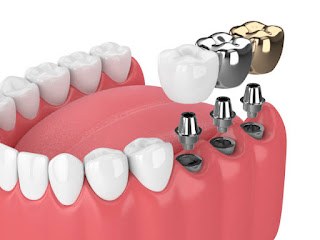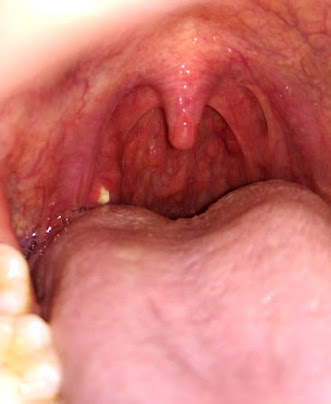Different Denture Types and Care Instructions
Different varieties of dentures require varying degrees of maintenance. Partial dentures, for example, need to be brushed daily with a toothbrush and mild soap. However, taking complete dentures in a cleansing solution would be the best overnight.
dentures will also depend on the material they are made from. For example, can clean porcelain or plastic dentures can clean porcelain or plastic dentures with a toothbrush and mild soap. However, metal dentures require special care, as they can tarnish if not cleaned properly.
How you care for your
When cleaning your dentures, brush all surfaces, including the inside of the teeth and gums. Then, rinse them thoroughly before putting them back in your mouth.
It’s also essential to clean your mouth after removing your dentures. Brush your gums with a toothbrush with gentle bristles, tongue, and palate. This will help remove any food particles or bacteria that may have been left behind.
If you need any assistance on how to care for your dentures, be sure to ask your dentist or dental care provider. They can give you specific instructions based on your individual needs.
There are numerous options for replacing lost teeth. Whether it's a denture, bridge, or implant, your dentist will be able to offer the best solution for you. If your dentist recommends dentures, there are various varieties on the market, each composed of multiple materials and providing different functions. Therefore, it is crucial to grasp the advantages of the multiple options to determine which type is ideal for you.
Here are some of the alternatives:
Full dentures - Full dentures, also known as complete dentures, are removable devices that can be used to replace lost upper and lower teeth. The denture teeth are composed of porcelain or acrylic and are held in place by a foundation made of acrylic or metal. If you are missing all of your teeth, you need complete dentures, which can help restore your smile's confidence by restoring your appearance.
Both the upper and bottom dentures rest on the gum tissue, and suction helps to maintain their position. Denture glue can also aid in securing dentures and preventing food particles from creating discomfort, which can occur if they become stuck beneath the denture. With good care and upkeep, complete dentures can last between 5 and 10 years.
Partial Dentures: The purpose of upper and lower partial dentures is to replace lost teeth. Partial dentures can replace a few lost teeth and can be unclipped and removed as needed, boosting your confidence.
Temporary Dentures - Temporary dentures, often instantaneous ones, can be placed immediately following tooth extraction. They can help you maintain a normal lifestyle while you wait for your new permanent dentures to be fitted. For example, you can resume chewing your favorite foods without exerting excessive force on your remaining natural teeth.
Your dentist may offer them to ease your mouth into dentures or if you have previously experienced sensitive teeth or gums. Your mouth can heal with temporary dentures because they don't need to be removed from substantial lifestyle adjustments by lowering the pressure on your remaining natural teeth when you eat. Your dentist will take measurements and create models of your teeth in advance so that your dentures will be ready to be worn while your jaw heals.
Flexible dentures - Flexible dentures are a type of partial denture, although they are constructed from a different material than conventional partial dentures. Most loose dentures are produced from a thin thermoplastic material, such as nylon, instead of the thicker, more rigid acrylic used to create complete dentures.
If you are new to wearing replacement teeth, you may find that flexible partial dentures are more comfortable than conventional detachable partials. In addition, most partial dentures are built with metal components that can occasionally be visible. Loose dentures do not appear and feel far more natural without metal components.
Static Bridge - A fixed bridge is used to replace lost teeth by surgically affixing a crown, a type of prosthetic tooth, to the natural teeth on each side. As with other surgically fixed dentures, such as implants, implant-supported dentures, and snap-in dentures, fixed bridges are typically more expensive than removable dentures.
Cantilever bridge - A cantilever bridge is advised when there are no teeth on one side of a missing molar to support the bridge. On the opposing side, one or more teeth are employed as support instead.
Implants - Dental implants resemble the tooth's roots. They are inserted into the bone surgically and will eventually fuse with it to provide a natural fit. The implants are then "loaded" either immediately following surgery or within six months.
Implant-Retained Fixed Prosthesis - Implant-supported fixed dentures have a crown attached to implants surgically placed in the jawbone. The piece is then secured in place with screws.
Snap-on dentures - Attach-on dentures are removable crowns that snap into jawbone implants surgically implanted. You may enjoy your favorite dishes without worrying about your dentures coming loose.
HOW TO PROVIDE OVERNIGHT CARE FOR YOUR DENTURES
Prepare the restroom. Before you remove and clean your dentures for the night, fill the sink with warm water. Take a towel and roll it up before placing it on the sink's rim. If you are concerned about your dentures falling or shattering, especially if you have stone or tile floors, you may wish to lay down an additional towel.
You should use warm water to gargle. The denture adhesive seal will be loosened by warm water, making it easier to remove your dentures.
Remove your dentures. Start by removing the lower denture, followed by the upper denture. It's essential to keep in mind that removing different types of dentures requires a different technique. For a complete explanation, please visit.
Rinse dentures under running water to eliminate food particles.
Use a denture brush or a regular soft toothbrush to clean dentures. You may use water, denture paste, or toothpaste without abrasives. Avoid toothpaste containing abrasives.
Remove sticky residues from your mouth. Warm salt water should gargle, and use a clean washcloth to wipe the gums and roof of the mouth. Afterward, rinse your mouth with warm water again. Additionally, you can brush your gums using a very soft toothbrush. Those who have partial dentures should wash their natural teeth.
Overnight, soak your dentures in a denture cleaning solution or water. Additionally, you can use fast-acting cleaners and then store your dentures in water. Follow the instructions printed on the denture cleanser's packaging. If you have partial dentures, use a denture-specific cleaning solution.
In the morning, thoroughly clean your dentures with water before placing them in your mouth.
Regardless of the type of dentures you use, sleeping with them is a poor idea and will lead to several health problems in the future. To maintain your mouth free of bacteria, your gums healthy, and your bones undamaged and robust, remove your dentures each night before bed.
At Cascade Dental, we always recommend that our patients remove their dentures at night. Not only does this give your gums a much-needed break, but it also allows you to clean your dentures more thoroughly. If you have any questions or concerns about how to care for your dentures, please don't hesitate to give us a call!


Comments
Post a Comment